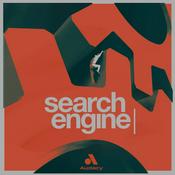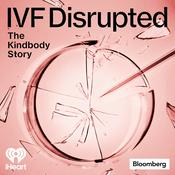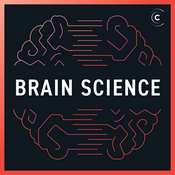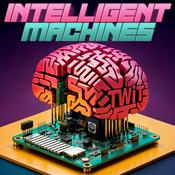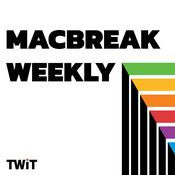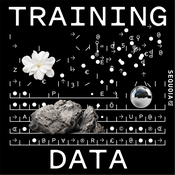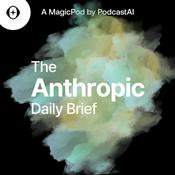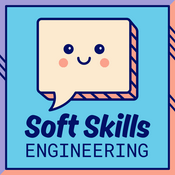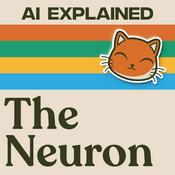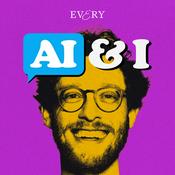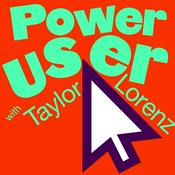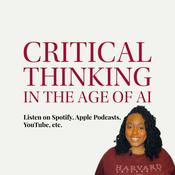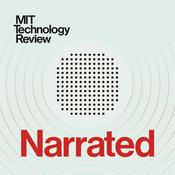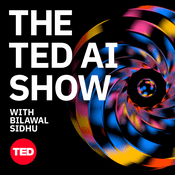The Daily AI Show
The Daily AI Show Crew - Brian, Beth, Jyunmi, Andy, Karl, and Eran

Latest episode
701 episodes
- Wednesday's show focused on the growing importance of persistent context and workflow memory in agentic AI systems. The conversation centered on Google’s new Conductor framework, real-world lessons from Claude Code and Render deployments, and how context management is becoming the difference between fragile experiments and durable AI-powered software. The second half expanded into market shifts, AI labor displacement concerns, chip and inference economics, and emerging ethical and safety tensions as AI systems take on more autonomous roles.
Key Points Discussed
00:00:00 👋 Opening, February 4 kickoff, host check-in
00:01:20 🧠 Google Conductor introduction, persistent context via markdown in repos
00:06:10 📂 Context directories, shared memory across teams and machines
00:10:40 🔁 Conductor workflow sequence, context, spec, plan, implementation
00:14:50 🧑💻 Claude Code comparison, markdown artifacts and partial memory gaps
00:18:30 ☁️ Render MCP integration, logs, debugging, and production lessons
00:23:40 🔍 GitHub repos as the backbone for multi-agent workflows
00:27:10 🧠 Context fragmentation problem across ChatGPT, Claude, Gemini
00:30:20 📱 iOS development, Xcode native Claude SDK integration
00:35:10 🧪 Personal selfware examples, shortcuts vs custom apps
00:38:40 🏎️ Anthropic partners with Atlassian Williams F1 team
00:42:10 🎥 Sora app philosophy, creativity feeds, and end-user confusion
00:46:00 🤖 MoldBook update, human-posted content and agent purity debates
00:49:30 🧠 Agent memory vs human memory, Nat Eliason and Felix discussion
00:54:20 🛡️ OpenAI hires Anthropic preparedness lead, AGI safety signals
00:58:10 ⚡ OpenAI inference speed upgrade, Cerebras shift, chip constraints
01:02:10 📊 AI market share shifts, OpenAI, Gemini, Grok competition
01:06:40 🧱 SaaS market pressure, contract AI tools and investor reactions
01:10:20 🧑🤝🧑 Rentahuman.ai, humans as callable infrastructure
01:14:30 🧠 Monkey fingers metaphor, labor displacement framing
01:18:40 🧠 Sonnet 5 rumors, outages, and release speculation
01:22:30 🛑 International AI Safety Report, deepfakes, misuse, governance gaps
01:27:20 🏁 Wrap-up, preview of AI science stories, sign-off
The Daily AI Show Co Hosts: Brian Maucere and Andy Halliday - Tuesday’s show centered on OpenAI Codex and the broader shift from single-agent assistance to managing teams of AI agents. The discussion compared Codex and Claude Code in practice, explored where UI and orchestration actually matter, and then widened into agent behavior, anthropomorphism risks, CRM re-architecture, and what “AI-first” software really looks like when you try to deploy it inside real organizations.
Key Points Discussed
00:00:00 👋 Opening, February 3 kickoff, framing the news-first focus
00:01:40 🧑💻 Codex overview, GPT-5.2-codex model and Mac desktop app
00:04:40 🧠 Multi-agent coding, parallel tasks, bounded work trees
00:08:20 📦 Codex vs Claude Code, packaging vs capability differences
00:12:10 🧩 Cursor, IDEs, and whether Codex replaces existing tools
00:16:40 🔁 Automation vs orchestration, why n8n and Make still matter
00:21:30 🧠 Agent swarms, conceptual understanding, and system-level goals
00:27:10 🖥️ Claude Co-Work vs Claude Code, Mac vs Windows friction
00:33:20 🧰 MCP setup, Chrome watching, terminal order dependencies
00:39:10 🧑🏫 Doris in accounting, skills as the real adoption unlock
00:45:00 📦 Skills over prompts, zip files, instruction following reliability
00:51:10 🧑💼 Hyper-personalization for executives and internal reporting
00:56:20 ⚠️ Mustafa Suleyman on MoldBook, anthropomorphism, and risk
01:02:30 🧠 Emotional attachment, AI as mirror vs human connection
01:08:10 🤖 OpenClaw, persistent memory, proactive assistants
01:13:20 🧪 Carl’s agent experiments, emergent behavior and “monkey fingers”
01:18:50 📈 YC thesis, AI agencies as software-margin businesses
01:23:40 🧑💻 Day.ai announcement, AI-first CRM positioning
01:28:30 🏢 Day.ai vs Salesforce, rip-and-replace vs wraparound models
01:34:40 🔗 CRM as system of record, AI as the interface layer
01:40:10 🤔 Build vs buy debate with Codex and Claude Code
01:45:30 🔮 OpenClaw as universal assistant, risk tolerance discussion
01:50:40 🕰️ Show length reflection and editing constraints
01:52:10 🏁 Wrap-up, thanks to guests and community, sign-off
The Daily AI Show Co Hosts: Andy Halliday, Beth Lyons, Brian Maucere, and Karl Yeh - Monday’s show focused almost entirely on OpenClaw, MoltBook, and what happens when large numbers of autonomous agents are released into open systems. The discussion traced the origins of OpenClaw, the rapid explosion of MoltBook as an agent-only social network, and the serious security, cost, and governance concerns that surfaced within days. The broader thread tied agent autonomy back to trust, data readiness, and why most organizations are not yet prepared for truly proactive AI.
Key Points Discussed
00:00:00 👋 Opening, February 2 kickoff, hosts and context
00:03:10 🤖 OpenClaw background, CloudBot to MoltBot to OpenClaw naming chaos
00:07:40 🧑💻 Peter Steinberger background, PSPDFKit exit, solo builder narrative
00:13:20 🧠 Vibe coding addiction, productivity vs mental health tradeoffs
00:17:10 🌐 MoltBook overview, agent-only Reddit-style network explained
00:22:30 📊 MoltBook scale claims, fake agents, traffic, and early metrics
00:27:10 🔐 Security failures, exposed API keys, agent abuse risks
00:32:40 🧪 Emergent behavior, agent religions, self-organization, Crustafarianism
00:38:10 ⚡ Energy costs, who pays for autonomous agent compute
00:42:20 💸 Monetization questions, ads, subscriptions, and agent incentives
00:46:30 🧠 Proactive AI vs assistant mode, trust and control boundaries
00:51:20 📐 BI framework analogy, descriptive to prescriptive AI thinking
00:57:10 🗂️ Data readiness, messy systems, and why agents fail in enterprises
01:02:10 🧩 Data lakes, MCP limits, industry-specific stacks
01:07:40 🖥️ Windows vs Mac gaps, local files, real enterprise friction
01:13:30 🤖 Claude Cowork updates, plugins, skills, and controlled agency
01:18:40 🧠 Superintelligence speculation, agent collaboration as a path
01:23:50 🔍 What MoltBook is actually useful for, observation not deployment
01:27:40 🏁 Wrap-up, community links, and sign-off
The Daily AI Show Co Hosts: Brian Maucere, Andy Halliday, Beth Lyons, and Karl Yeh - Over the last six weeks, the center of gravity shifted. People spent 2024 learning how to talk to one model, now they manage systems where models talk to each other. Prompts still matter, but they increasingly hide inside workflows, agent routers, tool calls, and multi-step automation. That shift breaks the normal way professionals build competence, because the surface area you have to learn keeps changing faster than most teams can train, document, and standardize.
The Conundrum:
If AI skills now behave like a liquid, always taking the shape of the latest interface, model, or agent framework, what should you actually invest in? If you focus on the current tools and patterns, you stay effective, but your knowledge can expire quickly and you end up rebuilding your playbook every quarter. If you focus mainly on durable fundamentals, you build long-term leverage, but you risk falling behind on the practical methods that deliver results right now. How do you choose what to learn, teach, and operationalize, when the payoff window for tool-specific mastery keeps shrinking, but ignoring the tools also carries a real performance penalty? - Friday’s show was a candid, builder-focused episode about what it actually feels like to work with today’s most hyped AI agents. The conversation centered on Claude Skills, Claude Code, and MoltBot, with an emphasis on hard-earned lessons, security tradeoffs, and the value of tinkering even when things break. The second half broadened into market and ecosystem news, covering OpenAI, Anthropic, AI video momentum, and why experimentation today may quietly shape real fluency tomorrow.
Key Points Discussed
00:00:00 👋 Episode 650 kickoff, hosts, milestone reflection
00:02:10 📘 Claude releases official Skills guide, workflows, MCP, and standardization
00:05:40 🧠 Skills as organizational leverage, repeatability, and workflow memory
00:08:40 💸 “Stupid tax” concept applied to Claude Code lessons learned
00:12:30 ⚠️ OneDrive corrupting GitHub repos, local file hygiene issues
00:17:10 🧹 Temp files, repo bloat, and why cleanup matters for long builds
00:21:40 🔄 Rebuilding projects, two steps back to move faster forward
00:24:50 🤖 MoltBot recap, hype, and security concerns
00:28:30 🖥️ Running agents on Mac Minis vs VPS vs cloud isolation
00:32:20 ☁️ Cloudflare MoltWorker, $5/month hosted MoltBot option
00:36:10 🧑💻 Developer realities, rate limits, delays, and API abuse patterns
00:41:30 🎓 AI literacy, tinkering value, and learning through friction
00:46:20 🔐 Local models vs cloud APIs, privacy tradeoffs explained
00:50:40 🧠 Agents as architecture lessons, not magic assistants
00:54:10 🎧 NotebookLM audio previews improving, AI co-hosts getting smoother
00:57:30 📰 OpenAI retiring GPT-4o, implications for custom GPTs
01:02:10 🧱 Open source models approaching GPT-4-level capability
01:06:20 💰 Amazon, OpenAI funding talks, and Tranium chips
01:10:40 🛑 Anthropic loses Pentagon deal over guardrails
01:14:10 ⚖️ Music publishers sue Anthropic, training data fallout
01:18:30 🎬 AI video momentum, Grok Imagine pricing vs Sora and Veo
01:23:40 🎥 AI-generated short debuts at Sundance
01:26:50 🗺️ Time magazine AI-generated American Revolution series
01:30:40 📽️ Practical AI video workflows, physical shots guiding models
01:34:30 🧪 Genie, world models, and camera-aware environments
01:38:40 📺 Showrunner resurfaces, AI sitcoms revisited
01:42:10 🚀 MVP pressure, Claude Code weekend build sprint
01:45:30 📣 Community, Conundrum episode, newsletter reminders
01:47:30 🏁 Wrap-up and sign-off
The Daily AI Show Co Hosts: Brian Maucere, Beth Lyons, and Andy Halliday
More Technology podcasts
Trending Technology podcasts
About The Daily AI Show
The Daily AI Show is a panel discussion hosted LIVE each weekday at 10am Eastern. We cover all the AI topics and use cases that are important to today's busy professional.
No fluff.
Just 45+ minutes to cover the AI news, stories, and knowledge you need to know as a business professional.
About the crew:
We are a group of professionals who work in various industries and have either deployed AI in our own environments or are actively coaching, consulting, and teaching AI best practices.
Your hosts are:
Brian Maucere
Beth Lyons
Andy Halliday
Eran Malloch
Jyunmi Hatcher
Karl Yeh
Podcast websiteListen to The Daily AI Show, Darknet Diaries and many other podcasts from around the world with the radio.net app

Get the free radio.net app
- Stations and podcasts to bookmark
- Stream via Wi-Fi or Bluetooth
- Supports Carplay & Android Auto
- Many other app features
Get the free radio.net app
- Stations and podcasts to bookmark
- Stream via Wi-Fi or Bluetooth
- Supports Carplay & Android Auto
- Many other app features


The Daily AI Show
Scan code,
download the app,
start listening.
download the app,
start listening.








